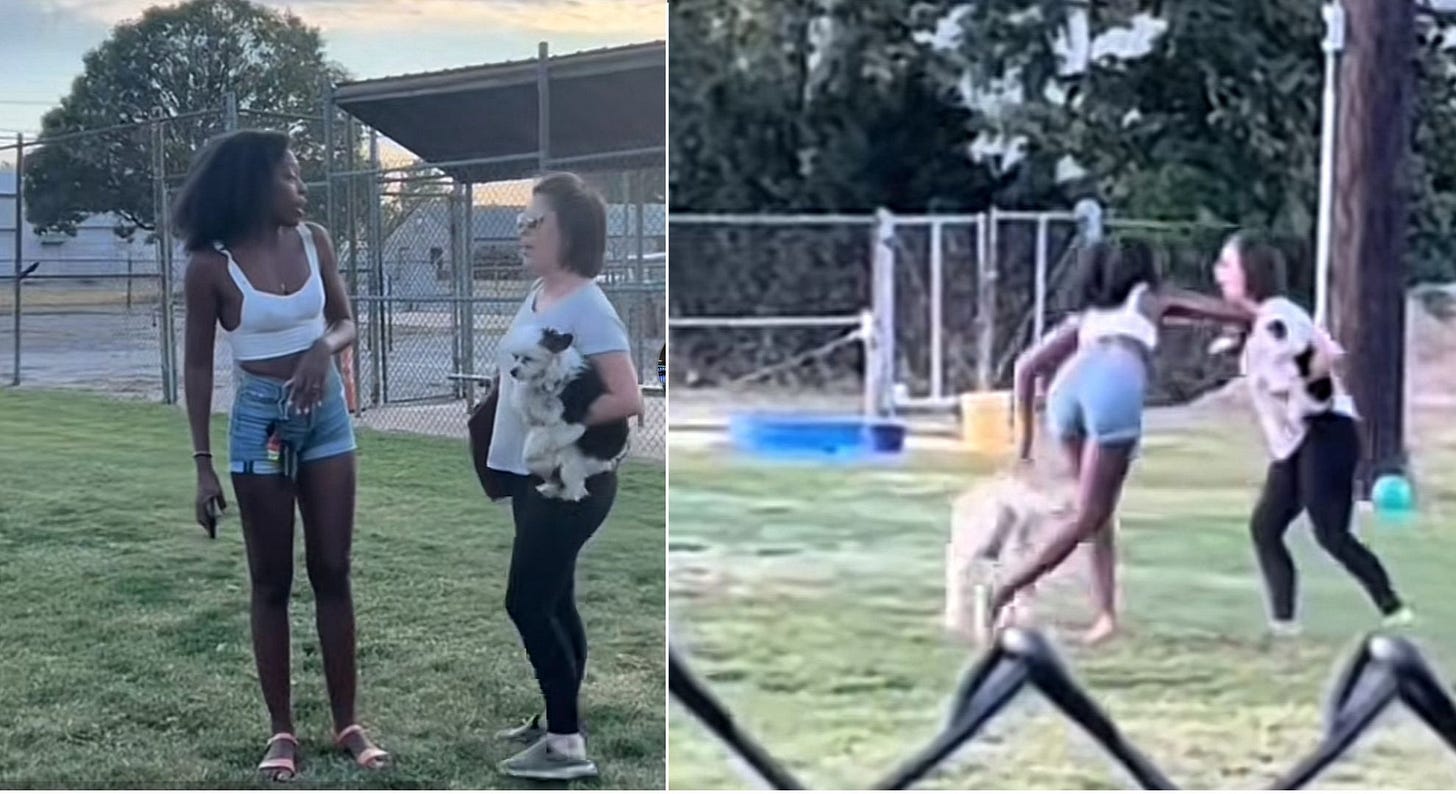On April 15, a Black content creator known online as TheJMorgan posted a video that quickly made waves across social media. In it, we see Morgan at a Tulsa dog park — calmly trying to leave — as a white woman screams at her, swings at her, and makes contact.
The video is disturbing. But what happened after is even more telling.
According to Morgan, despite clear video evidence and witness statements, Tulsa Police Department refused to arrest, cite, or even formally report the white woman’s assault. And when Morgan turned to her community for support, she found herself fighting off another attack — not physical this time, but social.
From victim to villain?
In a series of follow-up videos, Morgan explained why she chose not to physically fight back. She emphasized how dangerous it can be, in Oklahoma — an open-carry, conservative state with a long, brutal history against Black bodies — for a Black woman to be seen fighting a white woman, even in self-defense.
And yet, some Black women in her comments laughed. Mocked. Called her "soft" for not reacting with violence.
"You find it funny that I was assaulted," Morgan said, clearly exhausted. "Y'all really don't be thinking things through."
Her choice was survival — and it came with a cost.
Survival isn’t weakness
Too often, Black women are forced into a false choice: be "strong" or be safe. Fight and risk escalation, or walk away and get laughed at. Morgan’s story shines a painful light on how Black women are held to impossible standards, even by their own.
Choosing de-escalation isn't cowardice. It's strategy. It's protection. It's wisdom passed down through generations who understood that systems — from police to public opinion — were never designed to protect them.
But I can only imagine how much it hurts to see that wisdom met with mockery instead of support.
Bigger than a dog park.
Morgan’s experience is not isolated. It's part of a larger pattern: policing that fails Black victims, viral moments that expose deep fractures within community solidarity, and a constant battle to be seen — not just as victims or fighters, but as full human beings deserving of empathy.
The question that lingers is uncomfortable but necessary:
When the system fails us, can we at least stop failing each other?
Read my full story in the Black Wall Street Times.
Support Independent Journalism and Storytelling
If you believe in the power of citizen voices, grassroots democracy, and storytelling from the Black experience and beyond, help us keep building.
Support In Depth With Deon and our Documentary Projects:
☕ Grab a mug or some merch and rep the movement:
🎥 Donate directly to our documentary initiative to help me educate Oklahomans and the nation about our real history to empower a better future, proudly sponsored by The Third Space Foundation (tax-deductible):
Every contribution helps us preserve our history, empower our future, and tell the stories only we can tell. Thank you for being part of this journey.















Share this post